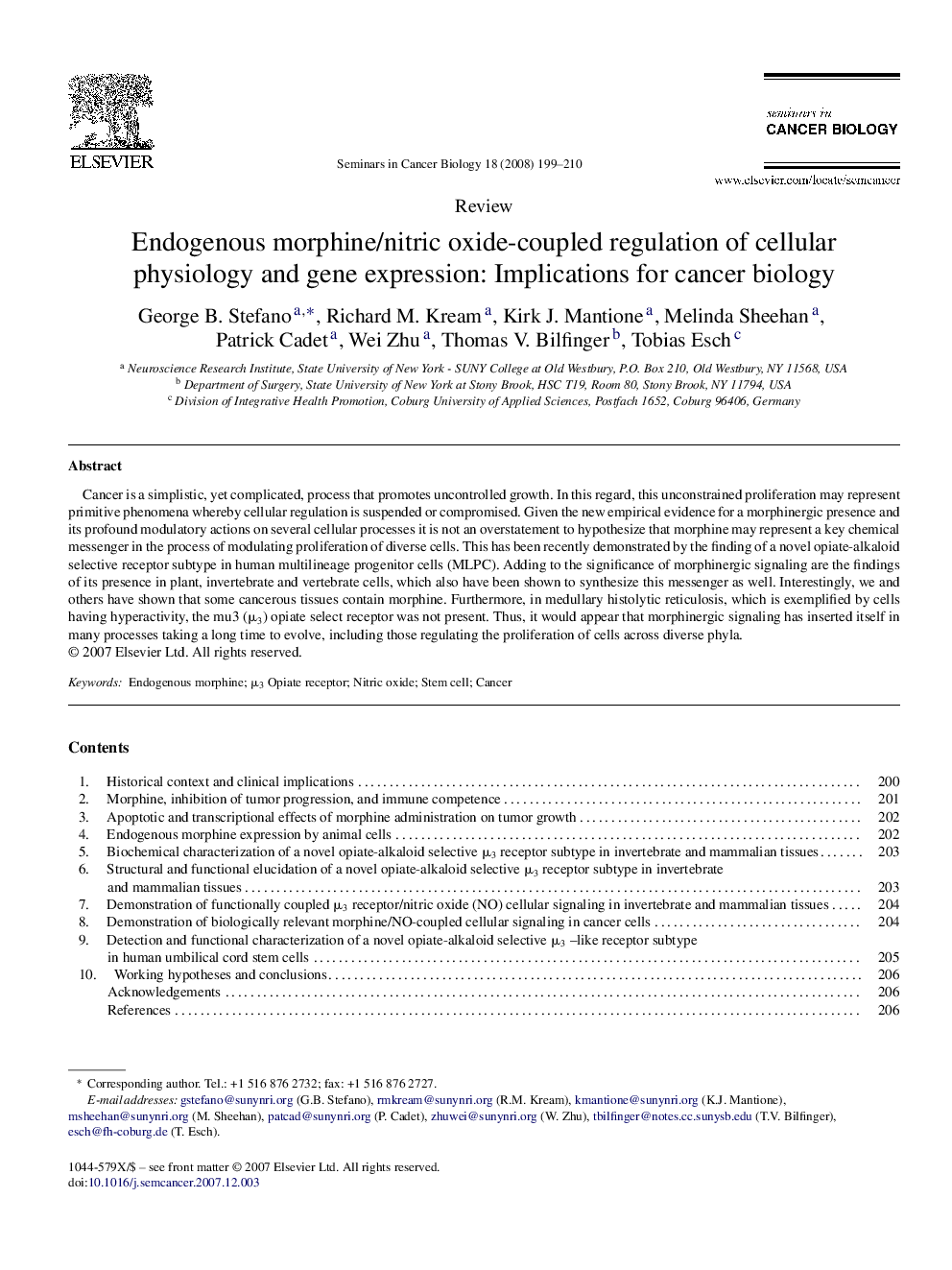| Article ID | Journal | Published Year | Pages | File Type |
|---|---|---|---|---|
| 2024070 | Seminars in Cancer Biology | 2008 | 12 Pages |
Cancer is a simplistic, yet complicated, process that promotes uncontrolled growth. In this regard, this unconstrained proliferation may represent primitive phenomena whereby cellular regulation is suspended or compromised. Given the new empirical evidence for a morphinergic presence and its profound modulatory actions on several cellular processes it is not an overstatement to hypothesize that morphine may represent a key chemical messenger in the process of modulating proliferation of diverse cells. This has been recently demonstrated by the finding of a novel opiate-alkaloid selective receptor subtype in human multilineage progenitor cells (MLPC). Adding to the significance of morphinergic signaling are the findings of its presence in plant, invertebrate and vertebrate cells, which also have been shown to synthesize this messenger as well. Interestingly, we and others have shown that some cancerous tissues contain morphine. Furthermore, in medullary histolytic reticulosis, which is exemplified by cells having hyperactivity, the mu3 (μ3) opiate select receptor was not present. Thus, it would appear that morphinergic signaling has inserted itself in many processes taking a long time to evolve, including those regulating the proliferation of cells across diverse phyla.
